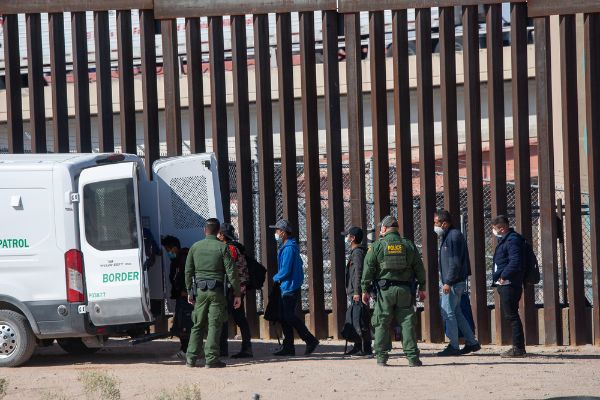
A federal judge in the Western District of Texas recently overturned her own Temporary Restraining Order (TRO) that had previously halted the Department of Homeland Security’s (DHS) actions against border barriers erected by the State of Texas. This development follows a lawsuit filed by Texas Attorney General Ken Paxton and the Texas Public Policy Foundation against DHS, U.S. Customs and Border Protection, U.S. Border Patrol, and various Biden administration appointees. Their lawsuit aims to stop federal interference in Texas’s efforts to curb illegal border crossings, as part of Governor Greg Abbott’s Operation Lone Star.
Initially, U.S. District Judge Alia Moses issued a TRO barring the federal government from altering Texas’s border barriers, except in cases where immediate medical attention for migrants was necessary. However, after a subsequent hearing on November 7, where further evidence was presented, Judge Moses rescinded the TRO on November 30 and directed the case to proceed to trial.
Judge Moses’s 34-page ruling highlighted the need to examine various issues at trial, including whether the federal agency’s actions represent a “final agency action” and whether there’s an institutional policy allowing Border Patrol agents in the Del Rio Sector to cut or move fences without exigent circumstances. The Del Rio Sector is currently a hotspot for border crossings.
One pivotal aspect of the case is the legal interpretation of whether an alien who is detained shortly after unlawful entry has ‘effected an entry’ into the U.S. Historically, federal officials have repatriated migrants across the border into Mexico, raising questions about the government’s stance on processing asylum claims for every migrant who steps on U.S. soil.
The Texas Governor’s office has not yet responded to the judge’s latest order, and a trial date for this significant case is still pending. The outcome of this trial could have substantial implications for border policy and the ongoing debate over federal versus state jurisdiction in immigration matters.
These content links are provided by Content.ad. Both Content.ad and the web site upon which the links are displayed may receive compensation when readers click on these links. Some of the content you are redirected to may be sponsored content. View our privacy policy here.
To learn how you can use Content.ad to drive visitors to your content or add this service to your site, please contact us at [email protected].
Family-Friendly Content
Website owners select the type of content that appears in our units. However, if you would like to ensure that Content.ad always displays family-friendly content on this device, regardless of what site you are on, check the option below. Learn More



